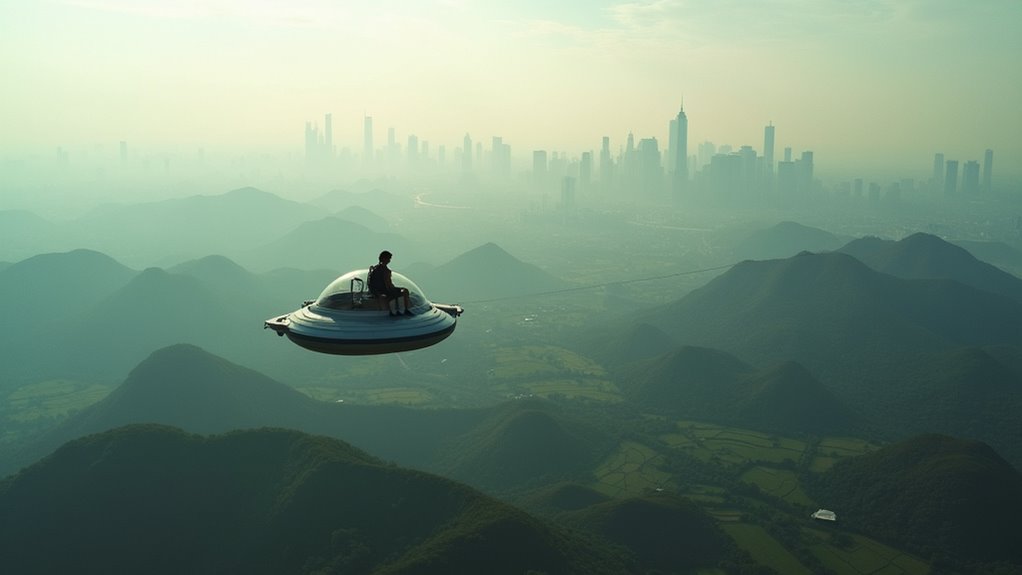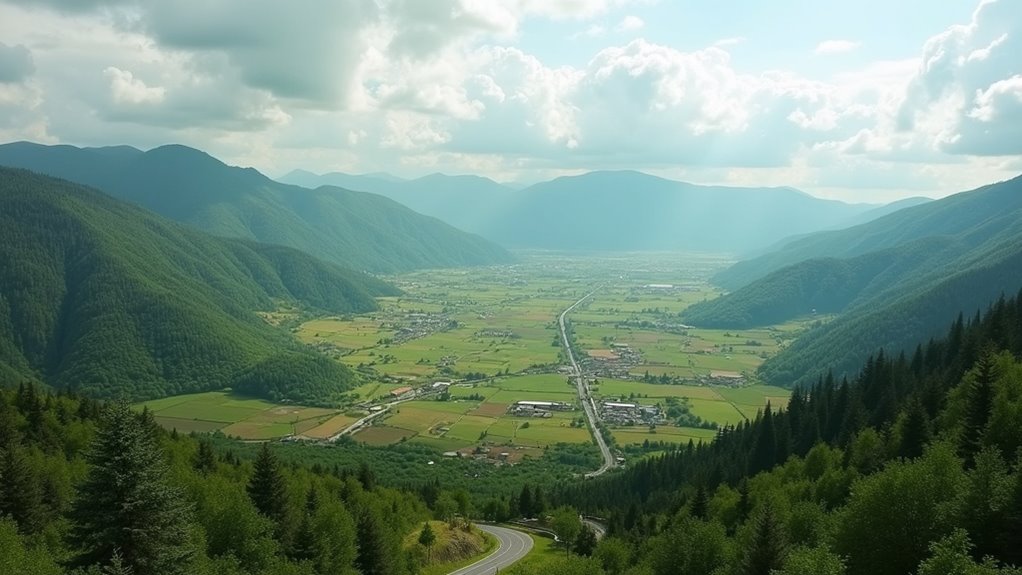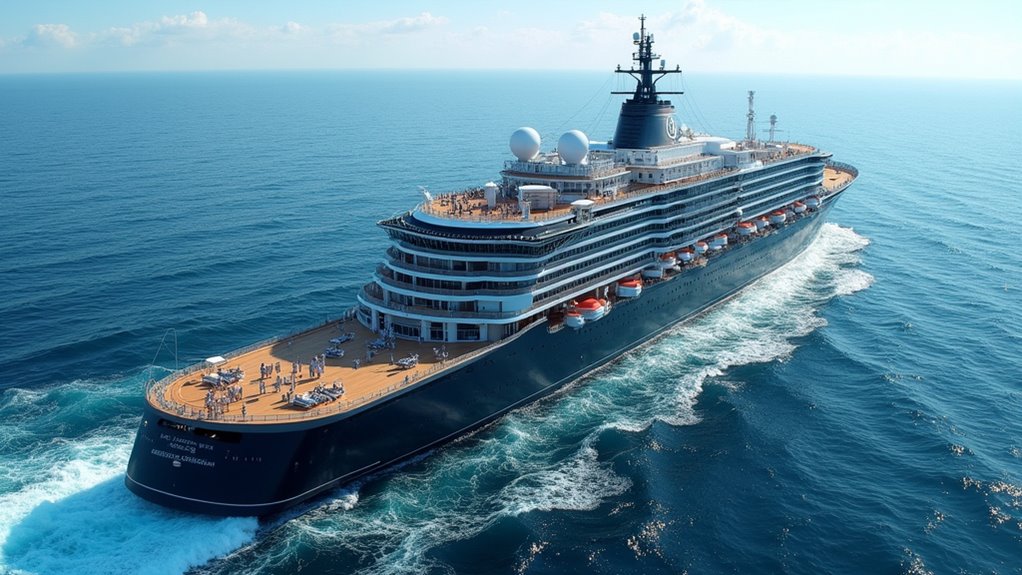Physical Address
304 North Cardinal St.
Dorchester Center, MA 02124
Physical Address
304 North Cardinal St.
Dorchester Center, MA 02124

Overland adventures from London to Bangkok beckon the intrepid traveler, promising a unique cultural immersion and breathtaking vistas along the way. Careful planning is the key to unlocking this epic journey.
You might be surprised to learn that it’s possible to travel from London to Bangkok without ever setting foot on a plane. This overland adventure through Europe and Asia offers a unique opportunity to learn about diverse cultures and stunning landscapes. From luxury bus tours to Trans-Siberian rail, the options are both exhilarating and logistically complex. Whether you seek a partial sea route or a rail-centric Southeast Asia entry, careful planning is key to making this epic journey a reality.

If you’re starting out on the overland route from London to Bangkok via Europe and Asia, you’ll need to navigate a diverse range of landscapes, cultures, and transportation options. The Overland Route was disrupted in 1979 by the Soviet invasion of Afghanistan and the Iranian revolution. The journey offers two main routes: through Iran, Afghanistan, Pakistan, and India, or via Syria, Jordan, Iraq, Iran, and southern Pakistan. Both routes provide cultural experiences and challenges due to visa requirements and geopolitical conditions.
Transportation choices include buses, trains, hitchhiking, and personal vehicles. Luxury bus tours also offer a more comfortable option with included accommodations and visas.
Travelers can choose from buses, trains, hitchhiking, and personal vehicles, or opt for a more comfortable luxury bus tour with accommodations and visas included.
Regardless of your route, you’ll encounter diverse landscapes, ancient sites, local markets, and the vibrant thoroughfares of Bangkok.
For those seeking an alternative to the overland routes through the Middle East and India, the Trans-Siberian railway network offers a compelling option to reach Bangkok from London. The Trans-Siberian Railway connects the European rail network to Vladivostok or the Chinese rail network. While the Trans-Mongolian and Trans-Manchurian routes are currently suspended, the Trans-Siberian proper remains operational, allowing you to travel from Moscow to Vladivostok before connecting to South Korea or China. However, this journey requires multiple visas and careful planning, and you’ll need to factor in additional costs for stopovers and potential language barriers. Despite the challenges, the cultural and scenic highlights of this route, from Siberian landscapes to historic rail stations, make it a unique and rewarding experience.

Why not consider maritime options as an alternative to flying from London to Bangkok? The sea journey can take around 34 days, but it offers several advantages.
Explore popular freight options like:
The route often involves transiting through the Suez Canal, with cargo ships arriving at Bangkok’s ports. Vessels frequency: 2-4 times a day While weather and safety considerations are essential, modern tracking and sustainability measures make maritime transport a viable choice.
Plus, it’s generally more cost-effective for large shipments, supporting jobs in logistics and port operations.
Travelers can opt for a rail-centric route to reach Southeast Asia from London, tapping into an extensive network of transcontinental connections.
The primary overland route traverses through Paris, Moscow, and Beijing before reaching Vietnam and Thailand. Key legs include the Eurostar to Paris and the Trans-Siberian Railway to China. Train travel offers more comfort and scenic views compared to flying.
Border transfers between Cambodia-Vietnam and China-Vietnam pose potential bottlenecks. While the total distance spans approximately 9,534 km, the journey can take multiple weeks due to variable connections.
Costs are generally cheaper than direct flights, though prices vary by cabin class and advance booking.
Operational challenges include fragmented schedules, language barriers, and documentation requirements, but the cultural and scenic benefits make this an immersive travel experience.

When traveling to Thailand, it’s crucial to guarantee your passport meets the entry requirements. Your passport must be valid for at least six months beyond your intended stay, and you’ll need at least one blank page for visa stamps.
UK citizens can enter Thailand for up to 60 days without a visa, but you may need to provide proof of onward travel. Visa Exemption Overview Overland entries from neighboring countries may now be limited to two 30-day visits per year.
For non-exempt travelers, you’ll need to complete a visa application form and provide recent photos. Be prepared to show valid travel documents at border crossings, as overstaying can result in fines or deportation.
Budgeting and timing your overland journey from London to Bangkok requires careful planning, as the costs and duration can vary considerably depending on your route and travel preferences.
Expect to spend $462–$1,200+ on flights for comparison, with additional rail ($40+ per segment), bus ($50 or less per leg), and visa ($20–$100+ per border) expenses. The distance from London to Bangkok is 6021 miles. Accommodation can range from $10–$30 nightly at hostels/budget hotels.
The trip could take a minimum of 10+ days with ideal connections, though a more realistic duration is 3–6 weeks to account for border checks and service delays. Cost-saving strategies like slow travel, local transit, and seasonal timing can help manage your budget.

Alongside the budgetary and timing considerations for your overland journey from London to Bangkok, it’s crucial to meticulously evaluate the security landscape along the way.
While Thailand’s major cities like Bangkok are generally safe, you’ll need to exercise caution in the southern provinces, where terrorist attacks are common. Plus, the Thailand-Malaysia border region experiences regular violence, making it a high-risk area. Political instability may lead to martial law and curfews, so keep updated on local security.
To stay secure, consider these tips:
As you commence your overland journey from London to Bangkok, it’s crucial to think about the seasonal factors that can greatly affect your travel experience.
During the winter, London’s cold, wet conditions can make outdoor activities challenging, while Bangkok enjoys balmy temperatures and abundant sunshine. Rainfall affects outdoor activities However, the Thai capital’s rainy season between May and October brings heavy downpours that can disrupt travel plans.
Avoid the peak tourist season in both cities from November to February, when crowds and prices soar. Time your journey right, and you’ll be rewarded with milder weather and fewer crowds in Bangkok’s shoulder season from March to May, or London’s summer months of June to August.

Once you’ve considered the seasonal factors that can impact your journey, it’s time to start mapping out the logistics of your overland travel from London to Bangkok.
The first step is to determine your route:
Driving or taking the train from the UK to Thailand is possible. Regardless of your chosen path, be prepared to navigate visa requirements, border crossings, and potential logistical challenges along the way.
With careful planning and a spirit of adventure, your journey from London to Bangkok without flying can be an unforgettable experience.
Embrace the journey, not the destination. With careful planning, the overland adventure from London to Bangkok rewards you with unforgettable culture and serendipitous encounters. Brace yourself for the unexpected – it’s where the true magic lies. Seize this once-in-a-lifetime opportunity to craft memories that’ll keep you coming back for more. The only question is: when do you start?